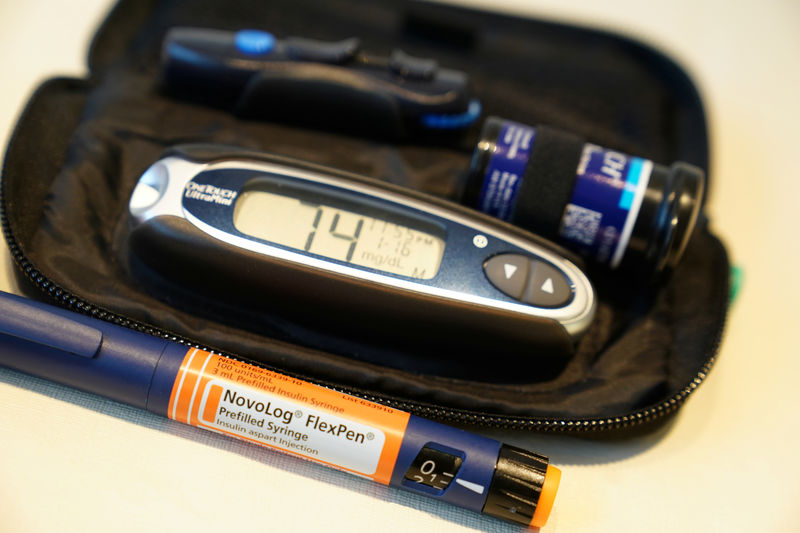By Yasmeen Abutaleb
WASHINGTON (Reuters) - Two powerful U.S. lawmakers sent letters to the three leading insulin manufacturers on Wednesday requesting information on why its cost has skyrocketed in recent years and how much the companies profit from the life-sustaining diabetes treatment.
Democratic Representatives Frank Pallone and Diana DeGette, the chairman and a top-ranking member of the House Energy and Commerce Committee, respectively, wrote to the heads of Eli Lilly (NYSE:LLY) and Co, Novo Nordisk (CO:NOVOb) and Sanofi (PA:SASY), the long-time leading manufacturers of insulin. The drugmakers have all raised the price of insulin at similar rates over the last several years.
"Despite the fact that it has been available for decades, prices for insulin have skyrocketed in recent years, putting it out of reach for many patients," the lawmakers wrote.
"As one of the few manufacturers of insulin in the United States, your company is well-suited to shed light on these issues and offer potential solutions," the letter to the three companies said.
The committee has not set a date for a hearing, a spokesman for DeGette said. It has the power to subpoena the drugmakers if they do not answer the committee's request.
The annual cost of insulin for treating a type 1 diabetes patient in the United States nearly doubled from 2012 to 2016 to $5,705 from $2,864, according to a recent study.
The lawmakers' letters come amid intensifying scrutiny from Congress over the high cost of prescription drugs for U.S. consumers. Both the House Oversight Committee and Senate Finance Committee held hearings on prescription drug prices on Tuesday, with a focus on insulin.
Sanofi confirmed receipt of the letter and said it would work with the committee on its request. Neither Novo nor Lilly immediately responded to requests for comment.
High prescription drug costs have consistently polled as a top voter concern and have been a top priority of the administration of U.S. President Donald Trump, a Republican.
U.S. prescription drug prices are far higher than in other developed nations that either directly or indirectly control medicine costs.
Democratic Representative Elijah Cummings earlier this month wrote to 12 pharmaceutical companies asking for detailed information on their pricing practices, including the makers of insulin.

About 1.2 million Americans have type 1 diabetes, requiring daily insulin. Type 2 diabetes, which affects nearly 30 million Americans, according to the American Diabetes Association, is treated with a variety of other medicines. But those patients may also eventually become dependent on insulin.